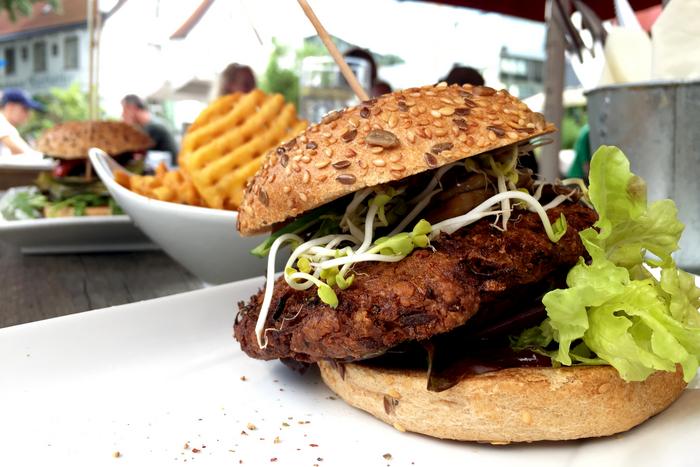While many people want to achieve major long-term goals – such as improving their diet, quitting smoking or adopting a more sustainable lifestyle – they often find it difficult to do so. Is it all down to a lack of self-discipline? No, it’s not, according to social psychologist Professor Wilhelm Hofmann from Ruhr University Bochum, Germany. For a review article in Nature Reviews Psychology, Hofmann has analyzed numerous research studies and highlighted the extent to which the physical and social environment influence individual behavior. He criticizes the fact that many psychological studies still tend to focus on the individual while ignoring crucial structural factors. The article was published online on November 20, 2023.

Credit: RUB, Marquard
While many people want to achieve major long-term goals – such as improving their diet, quitting smoking or adopting a more sustainable lifestyle – they often find it difficult to do so. Is it all down to a lack of self-discipline? No, it’s not, according to social psychologist Professor Wilhelm Hofmann from Ruhr University Bochum, Germany. For a review article in Nature Reviews Psychology, Hofmann has analyzed numerous research studies and highlighted the extent to which the physical and social environment influence individual behavior. He criticizes the fact that many psychological studies still tend to focus on the individual while ignoring crucial structural factors. The article was published online on November 20, 2023.
Environmental factors have enormous impact on decisions
Traditional approaches such as self-determination theory focus on personal autonomy. This means that an individual’s freedom of choice must be preserved at all costs. “The public policy recommendations that result from this are to make no restrictions, provide sufficient information about the identified risks and side effects of the various options and then trust that people will make the right decisions and act appropriately,” says Hofmann. But this formula doesn’t work.
To illustrate this, the Bochum-based psychologist cites the example of an eco-conscious consumer who’d like to reduce their meat consumption, but occasionally also finds themselves tempted by a meat dish. “In conventional psychology, this is regarded as a conflict within the individual,” he explains. If the person could only muster enough willpower, they would achieve their long-term goal. According to Hofmann, this view is misguided, because decisions are very much influenced by the environment: For example, if there are five meat dishes in the canteen, but only one vegetarian option – and the latter might even be more expensive. People also wish to conform to social norms: If many of your friends and relatives drive a big car, you’re more likely to want one yourself.
It’s not enough to hope for individual discipline
In his article, Hofmann combines psychological research with public policy research to illustrate that psychological research has implications for other areas and should take a broader view. In particular, he argues that we need to be more aware of the fact that people don’t have the power to shape many of their own environments.
“Many people try to live in a more sustainable manner, but fail to do so in reality,” says Wilhelm Hofmann. Unsustainable options are often cheaper, more visible and more available than sustainable ones. “Relying on individual discipline, willingness to make sacrifices and a sense of guilt won’t get us very far. We need to question and change the structures that contribute to social problems such as the overuse of natural resources and make sustainable behavior more difficult. And in order to achieve this, we need sound and effective political decisions.” Many people would like to see more regulation so that they no longer have to swim against the tide. Growing awareness of the problem, combined with the realization that some social challenges and crises can’t be solved through personal responsibility or free markets, is driving the desire for government intervention and solutions. In essence, society needs to agree on good rules in order to provide individuals with the best possible support on the path to the desired change towards greater sustainability.
Greater focus on the common good
“The accelerating climate crisis is the best example of how the unlimited exercise of personal consumer freedoms leads to negative consequences for society as a whole,” explains Wilhelm Hofmann. “We’ve forgotten to a certain extent to look at the collective benefit, i.e. the common good, and need to recognize the importance of good regulation once again. By this I mean that we need to agree on effective and fair rules that protect us from risks and that apply to everyone equally. Such as are standard practice in road traffic, for example.”
Still, the psychologist believes that individuals must do their part, too. “Everyone can take small steps and help shape their environment wherever possible. And once your own creative power as a citizen, employee or customer reaches its limits, you can advocate for people with decision-making power to take up the cause. We always have the power to influence,” he insists.
Journal
Nature Reviews Psychology
DOI
10.1038/s44159-023-00256-y
Article Title
Going Beyond the Individual Level in Self-Control Research
Article Publication Date
20-Nov-2023




